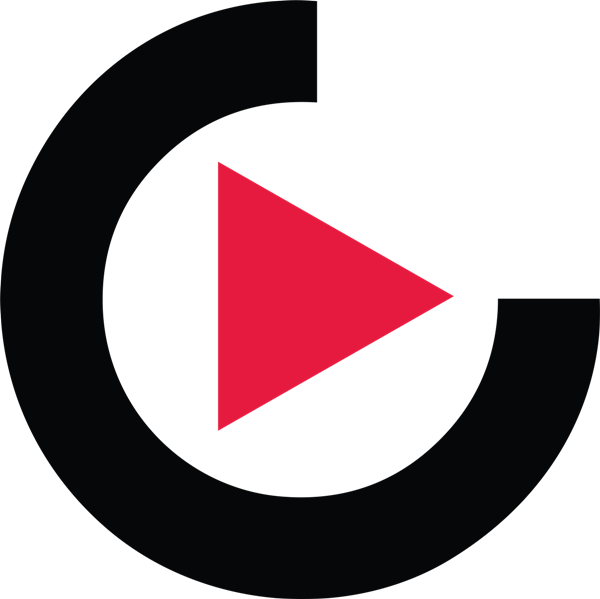The YouTube as a Career panel took place on Sunday at Summer in the City in Panel Room A. It featured Rose Dix, Rosie Spaughton, Riyadh Khalaf, and Luke Korns, and was chaired by Daniel J. Layton.
Daniel began by asking the panellists what careers they had wanted when they were younger, immediately offering his own answer of “a Spice Girl!” Luke mentioned his childhood dreams of being a filmmaker, while Rosie wanted to be a radio presenter, having volunteered at radio stations as a student. “One of my first words was ‘camera’,” Riyadh revealed, saying that he had always watched Big Brother and dreamt of presenting it. “Funnily enough, one of my first words as a baby was ‘YouTube’,” Rose joked, before mentioning that, at one point, she had wanted to be a veterinary assistant, but had instead studied film at university.
On the subject of how the panellists had found YouTube to begin with, Rose said that she “fell into it at the right time” and quite naturally, through her degree. “At first, it was strictly a hobby,” she said. But after a few years, Rose left her job to carry on YouTube full-time, describing it as a “scary leap of faith”. “We started so organically,” Rosie added. Daniel asked Rose and Rosie if they ever feel they have to filter their personalities on camera now that YouTube has turned into a career for them, with Rose answering, “We find it very hard to filter our videos”, but pointing out that, for branded videos, filtering themselves is slightly more necessary.
Luke started his channel on his thirteenth birthday after he found out about the platform from his friends. “It’s cool to kind of grow up on YouTube,” he added, referring to it as an archive for his teenage years. Riyadh said that, when he was a teenager, he found Tyler Oakley on YouTube, and was inspired to make videos of his own. After experiencing severe homophobia and death threats, and informing the police, Riyadh was advised to stop making YouTube videos. Seven years later, he returned to the platform. “I always had the dream of making it a career,” he said, clarifying that he never wanted to be famous, but self-sufficient.

When the creators were asked about the steps that they took to make YouTube a career, Rosie said that her multi-channel network was helpful for advice such as posting more regularly and getting better equipment. Rose and Riyadh both mentioned that they took the step earlier than they otherwise would have, due to them both disliking their full-time jobs. Luke pointed out that, for him, the experience was quite different as he still lived with his parents when his channel was growing, so the big decision for him was not going to college, and realising that YouTube could be a career for him. Daniel added that the question of “Do I want [my channel] to grow or let it coast?” is key in the decision about whether to have YouTube as a full-time career.
Daniel then considered the possibility of YouTube eventually not being a viable career path in the future, and asked what the creators would do instead. Rose said that “YouTube gives you that access to other platforms”, referring to YouTubers who have gone on to present television and radio. She also mentioned that YouTube provides skills which can be translated to other careers, and stated that “if you’re doing something you really enjoy, that is the right path for you”. Riyadh said that he is trying to “give as much love to the telly stuff as the online stuff” and “as a YouTube entrepreneur, you are forced to learn quickly”. Referring to his filmmaking career and YouTube, Luke said: “I always want the two to go hand-in-hand.”

Daniel mentioned the lack of control that comes with a career on YouTube, particularly with regard to algorithm changes. Rose and Rosie agreed that they would never change their style of video in order for their videos to be more favoured by the algorithm. Rosie added that she always tries to “think of the people, not the numbers”. Riyadh and Luke agreed on the importance of making content that you want to make, and avoiding comparing yourself to other creators.
Audience questions included advice on specific cases of people potentially leaving their jobs to have YouTube as a career, as well as advice on swearing in videos and whether this would affect monetisation. After a question about equipment and editing, the panellists agreed that creators should not feel that their videos have to be perfectly polished. “It has to be real,” affirmed Rose.
Photos by Emma Pamplin.
Want more from Summer in the City 2017?
Check out our Summer in the City tag, where you’ll find all of our coverage.
You might also be interested in:
- BookTube Panel at Summer in the City 2017
- LGBTQ+ Panel at Summer in the City 2017
- Challenge and Reaction Videos Panel at Summer in the City 2017
For updates follow @TenEightyUK on Twitter or like TenEighty UK on Facebook.









